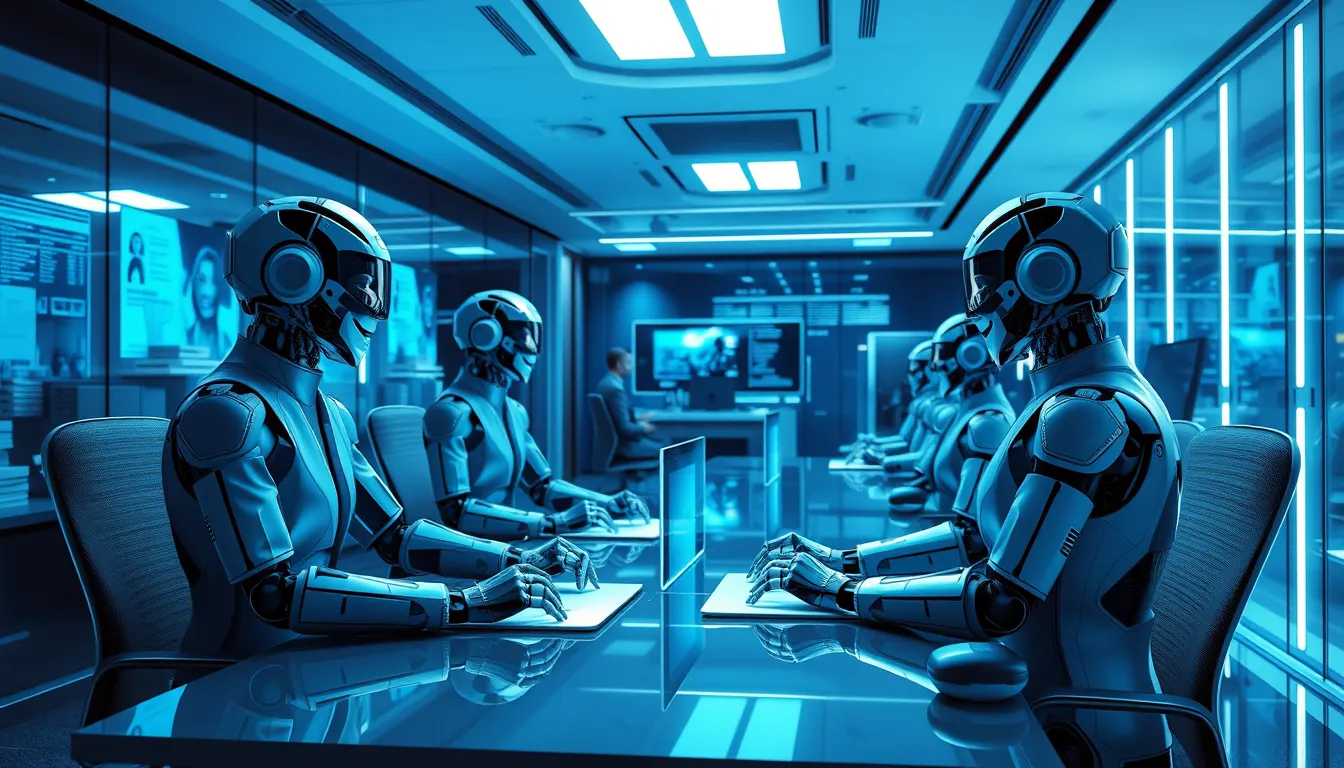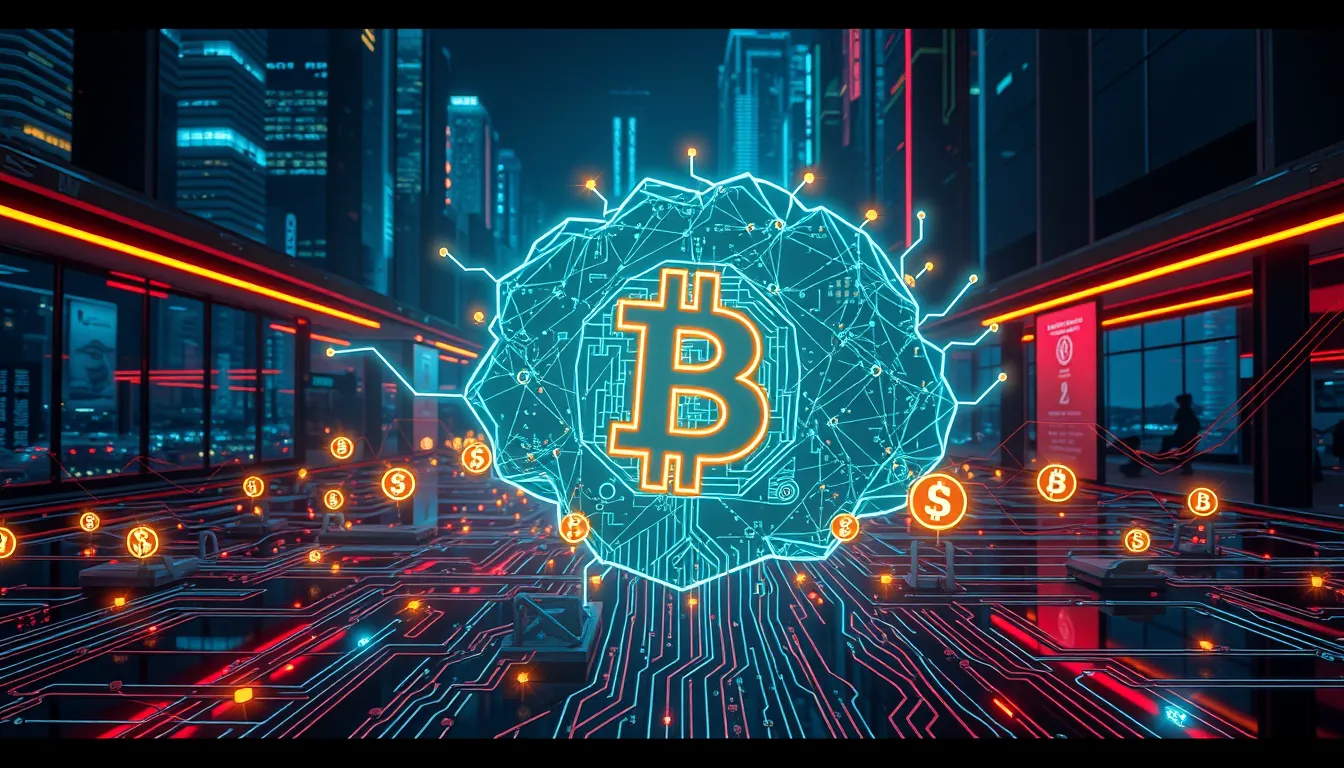Now Reading: Powerful AI in Healthcare Diagnostics: Boosting Patient Care
-
01
Powerful AI in Healthcare Diagnostics: Boosting Patient Care
Powerful AI in Healthcare Diagnostics: Boosting Patient Care

Powerful AI in Healthcare Diagnostics: Boosting Patient Care
Introduction
In today’s rapidly evolving medical landscape, AI in healthcare diagnostics is revolutionizing patient care. With advancements in machine learning and data analysis, artificial intelligence is transforming traditional diagnostic methods. The integration of AI in healthcare diagnostics enhances accuracy, speeds up clinical decision-making, and ultimately leads to improved patient outcomes. This article explores how AI technology is reshaping healthcare, the benefits it brings, and the challenges that come with its implementation.
The Rise of AI in Healthcare
The emergence of AI in healthcare diagnostics marks a significant milestone in medical technology. As hospitals and research centers worldwide embrace automated systems, the promise of faster and more precise diagnostics becomes increasingly feasible. In fact, the incorporation of AI in healthcare diagnostics is expected to reduce human error, minimize misdiagnosis, and ensure that patients receive the most effective treatment plans.
How AI Improves Diagnostic Accuracy
AI systems have the capability to analyze vast amounts of medical data, including imaging, lab reports, and patient history. Here are some key ways in which AI in healthcare diagnostics is making a difference:
- Data Analysis: AI algorithms can process large datasets quickly, identifying patterns that may be missed by the human eye.
- Automated Imaging: Techniques such as AI-based medical imaging can detect subtle differences in scans and X-rays, leading to earlier diagnosis.
- Predictive Modeling: By analyzing patient data, AI in healthcare diagnostics is able to predict disease progression and alert clinicians to potential issues before they become critical.
- Reduced Human Error: Automation supported by AI assists healthcare professionals in making accurate diagnoses, reducing the risk of costly mistakes.
These benefits together ensure that healthcare providers can deliver a higher quality of care. For more insight on medical imaging breakthroughs, you may visit the Mayo Clinic website at https://www.mayoclinic.org.
Enhancing Patient Care Through AI
One of the most compelling advantages of AI in healthcare diagnostics is its ability to improve patient care directly. With rapid and precise diagnostic results, treatment plans can be tailored to individual patients. The personalization of healthcare not only enhances treatment efficiency but also significantly improves patient satisfaction.
Case studies have shown that the integration of AI in healthcare diagnostics can lead to quicker intervention times. In emergency care settings, early detection of conditions such as strokes or heart attacks can be a matter of life and death. Moreover, AI applications help reduce the workload on overburdened medical staff, allowing them to focus on delivering compassionate care.
Addressing the Challenges
Despite its enormous potential, the deployment of AI in healthcare diagnostics brings several challenges. Some of these include:
- Data Privacy and Security: The massive amount of patient data processed by AI systems necessitates strict security protocols to protect sensitive information.
- Integration with Existing Systems: Many healthcare facilities struggle with integrating new AI technology with legacy equipment and software.
- Regulatory and Ethical Concerns: Ensuring that AI tools comply with medical standards and ethical guidelines is essential for maintaining trust between patients and providers.
To address these concerns, regulatory bodies are continuously working to develop robust frameworks. Partnerships between technology companies like OpenAI and healthcare institutions are also crucial in establishing reliable standards for AI implementation.
Future Prospects of AI in Healthcare Diagnostics
Looking ahead, the future of AI in healthcare diagnostics holds remarkable promise. Continued advancements in AI algorithms, enhanced computational power, and a deeper understanding of medical data will drive the next phase of innovation in this field. As we move forward, further integration of AI will help bridge the gap between technology and patient care, ensuring that diagnostic processes are not only efficient but also highly personalized.
Impact on Global Healthcare
The transformative impact of AI in healthcare diagnostics extends far beyond individual hospitals. Globally, AI solutions are being deployed to improve healthcare services in remote and underserved regions. By leveraging telemedicine and remote diagnostics powered by AI, even patients in distant locations can receive expert consultations and timely interventions.
Key takeaways about AI in healthcare diagnostics include:
- Enhanced accuracy and speed in diagnostics
- Reduction of human error in clinical decisions
- Increased personalization of patient treatment plans
- Global improvement in accessibility and healthcare outcomes
As AI continues to mature, its role in healthcare diagnostics is expected to expand further. Clinicians and patients alike are set to benefit from a healthcare system that is more responsive, efficient, and attuned to individual needs.
Conclusion
AI in healthcare diagnostics is not just a technological advancement—it represents a paradigm shift in patient care. By integrating AI into everyday clinical practice, healthcare providers are better equipped to offer timely and precise treatments. The benefits from improved diagnostic accuracy, personalized patient care, and the potential for global outreach are immense. As both the technology and regulations evolve, it is crucial for the healthcare industry to embrace these changes and work collaboratively to overcome the challenges. With continuous innovation and adoption, the future of healthcare looks brighter than ever, marking a new milestone in medical diagnostics.
In summary, the journey of AI in healthcare diagnostics is a testament to human ingenuity and the relentless drive to improve patient outcomes. This powerful blend of technology and medicine has the potential to transform healthcare as we know it, paving the way for a healthier and more efficient world.

























